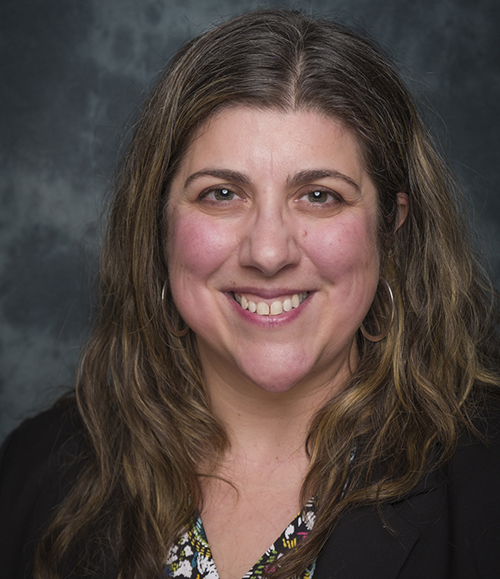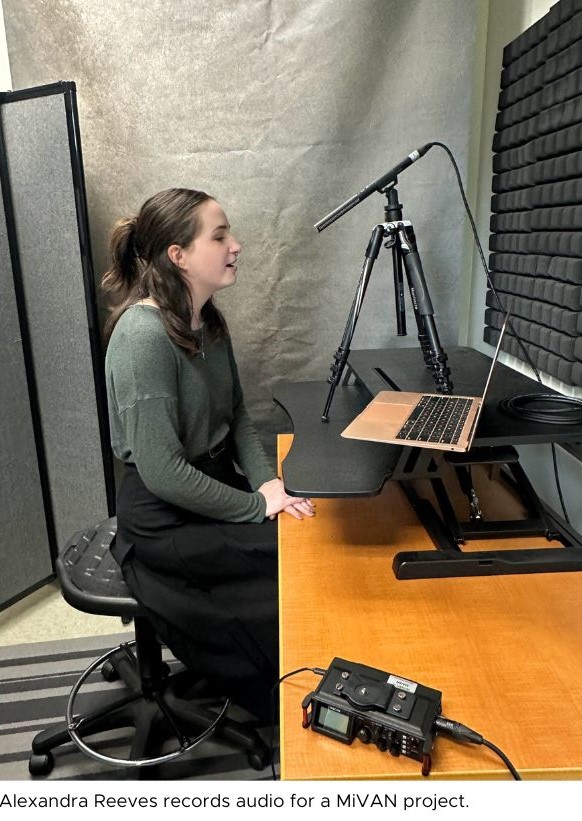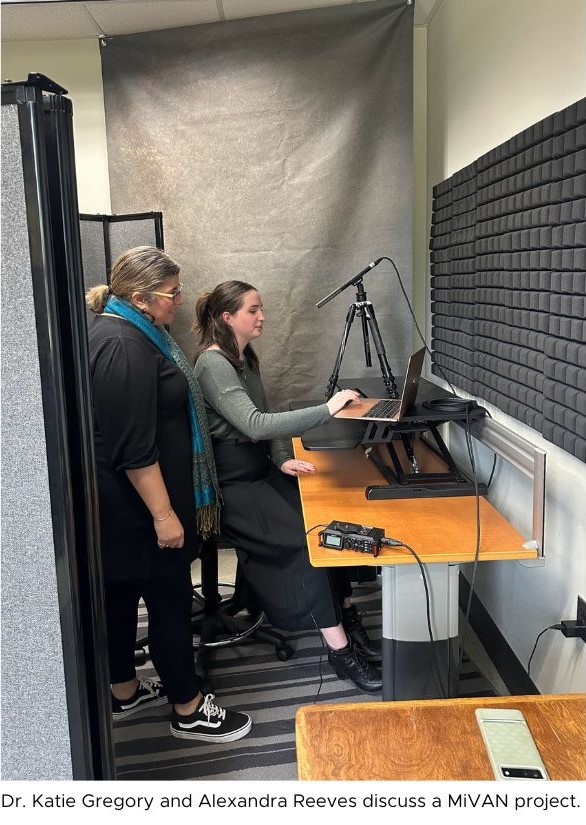MSU Psych's Impact on Michigan: Empowering Victim Advocates with MiVAN
November 18, 2024 - Shelly DeJong
 Across the state of Michigan, there are hundreds of advocates who help victims of crimes during their darkest days. Nonprofit organizations, prosecuting attorneys’ offices, and law enforcement offices are just some of the groups that victim advocates work for as they provide emotional support and connect victims to vital resources including access to emergency housing, legal aid, and victim compensation. But the turnover in victim advocacy roles is high. MSU Psychology's Katie Gregory and her team at the Michigan Advocacy Network (MiVAN) are working to combat this by offering evidence-based training and resources that empower and support victim advocates.
Across the state of Michigan, there are hundreds of advocates who help victims of crimes during their darkest days. Nonprofit organizations, prosecuting attorneys’ offices, and law enforcement offices are just some of the groups that victim advocates work for as they provide emotional support and connect victims to vital resources including access to emergency housing, legal aid, and victim compensation. But the turnover in victim advocacy roles is high. MSU Psychology's Katie Gregory and her team at the Michigan Advocacy Network (MiVAN) are working to combat this by offering evidence-based training and resources that empower and support victim advocates.
As the director of MiVAN and an assistant professor in the ecological / community advocacy network, Gregory has seen firsthand the need for a strong network for victim advocates.
"Advocates may not feel connected to other advocates or resources available across the state which in turn can be isolating. If we can help advocates feel more confident and more informed in the work that they’re doing and the support that they’re giving, then the outcome is hopefully going to be even better for survivors and victims who are coming in for services,” said Gregory.
Funded by Michigan Department of Health and Human Services’ Division of Victim Services, MiVAN aims to maximize knowledge, skills, and connections of advocates working with victims of crimes by providing current training and technical assistance. They support victim advocates in their practice of remaining strengths-based, trauma-informed, and culturally responsive when working with survivors, victims, and their families.
 Stationed in the psychology building on campus at MSU, MiVAN is home to a recording studio and a team of qualified researchers who create free and accessible resources for advocates. They have a learning management system that advocates from across the state can access whenever they want.
Stationed in the psychology building on campus at MSU, MiVAN is home to a recording studio and a team of qualified researchers who create free and accessible resources for advocates. They have a learning management system that advocates from across the state can access whenever they want.
One recent MiVAN initiative is a series called Breaking Barriers, which introduces advocates to the ways they can best support survivors and victims in their communities by culturally honoring and understanding their experiences by connecting advocates to the work of culturally specific programs throughout the state of Michigan. For example, one series was created in collaboration with WEAVE of the YWCA of West Central Michigan, which focused on how to best support survivors who have intellectual and developmental disabilities. Other parts of the series include Working with Arab Americans in collaboration with ACCESS of Dearborn, Working with African American survivors of sexual assault in collaboration with SASHA Center of Detroit, working with Latina/x/e survivors in collaboration with the LA VIDA Partnership, a program of the CHASS Center in Detroit, and soon MIVAN will be promoting cultural videos created by Uniting Three Fires Against Violence (UTFAV), in support of Indigenous/Tribal/Native survivors of violence, focusing on the work and knowledge of members of the 12 federally-recognized tribal nations across Michigan.
The MiVAN team recently conducted three surveys of Michigan advocates from 500 respondents, which helped them better understand their needs and concerns.
 Starting on October 1st, new advocates now have online training options to complete a portion of required training that historically has been in person and a financial strain on some agencies. After listening to the needs of victim advocates, MiVAN, in coordination with the Michigan Coalition to End Domestic and Sexual Violence (MCEDSV), has worked to make these required trainings more accessible by offering online components, which allows advocates to complete that part before attending in-person sessions for hands-on practice and deeper discussions.
Starting on October 1st, new advocates now have online training options to complete a portion of required training that historically has been in person and a financial strain on some agencies. After listening to the needs of victim advocates, MiVAN, in coordination with the Michigan Coalition to End Domestic and Sexual Violence (MCEDSV), has worked to make these required trainings more accessible by offering online components, which allows advocates to complete that part before attending in-person sessions for hands-on practice and deeper discussions.
“A lot of the work that we do introduces people to new concepts and approaches to their work, which can be difficult to teach in an online format, but as a professor, I've had first-hand experience and knowledge on how to push people's thinking in online spaces," said Gregory. “I'm proud that we’ve been able to make these trainings more accessible to all victim advocates in Michigan.”
Each state has unique needs that advocates must understand. Michigan, like every state, has specific challenges and opportunities that are crucial for local advocates to know. Since people are more likely to engage with programs within their own state, MiVAN’s intention is to benefit Michigan directly.
“When MSU talks about our land grant commitment to the state of Michigan, this work really fulfills part of that commitment,” said Gregory. “We’re giving back to the state in a way that is really helping serve some of the most vulnerable people in Michigan.”
To learn more about the Michigan Victim Advocacy Network, their mission, and take advantage of their resources, visit https://mivan.org/.

